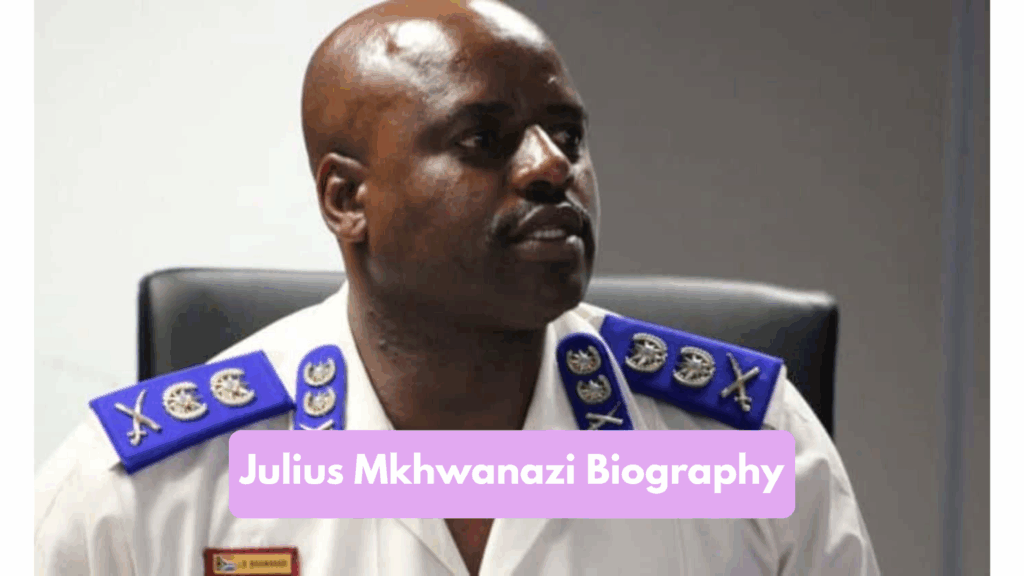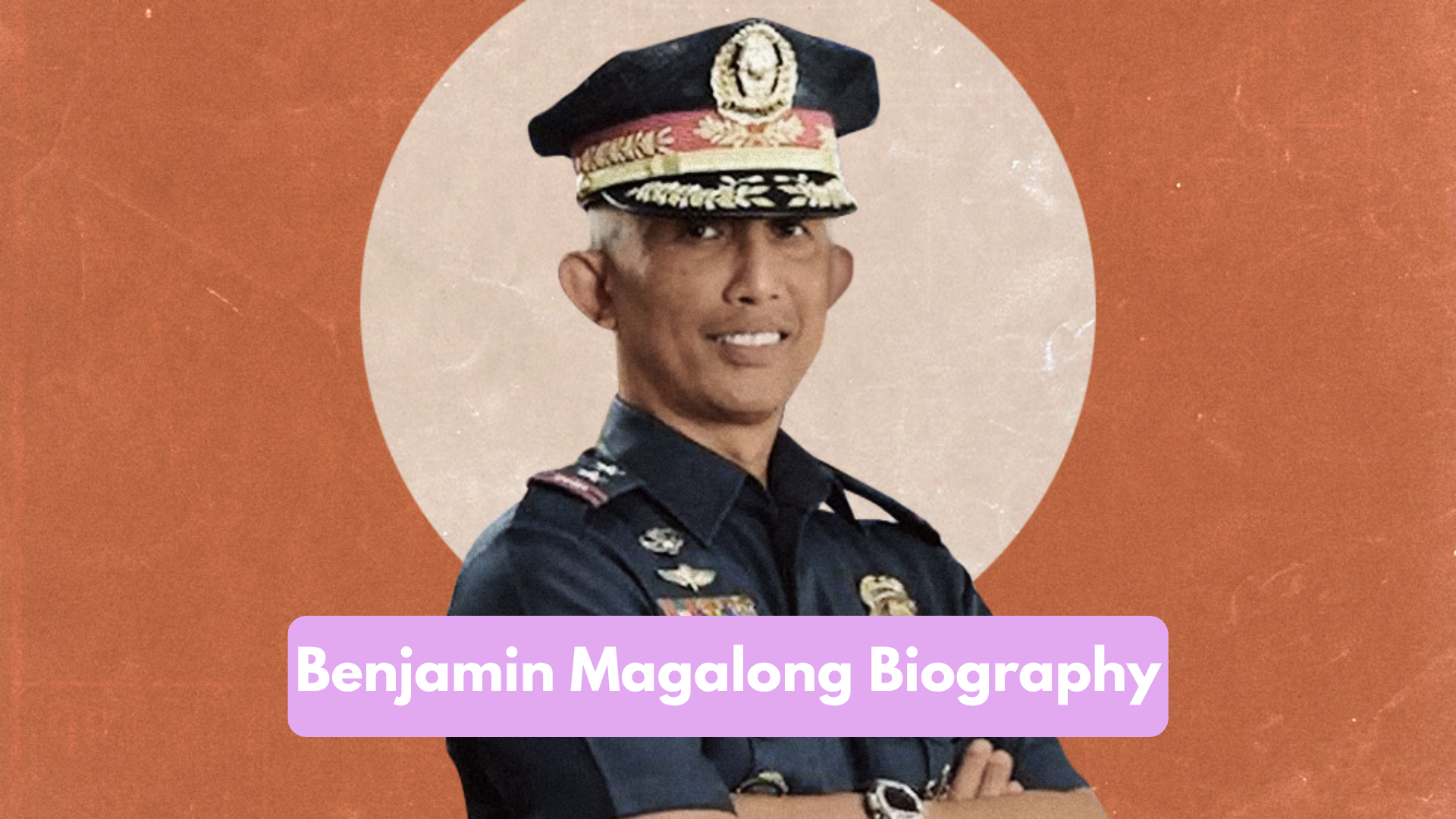Julius Mkhwanazi Biography: Qualifications, Wife, Age, Net Worth, Career, Height, Children

Julius Mkhwanazi is a senior South African metro police official who rose through the ranks of the Ekurhuleni Metropolitan Police Department (EMPD).
In recent months he has been at the centre of high-profile investigations and public scrutiny after testimony at the Madlanga Commission and media reporting that led to his suspension.
This biography summarizes his career path, the allegations he faces, the institutional response and what the unfolding story may mean for accountability in local policing.
Early career and rise in the EMPD
Public records and media profiles show Mkhwanazi has held senior positions within the EMPD, including roles in specialised services and leadership posts that made him one of the most visible figures in Ekurhuleni’s municipal policing. Over time he built influence inside the department — a trajectory that culminated in him serving in acting leadership roles. That rise gives context to why recent allegations have drawn such attention: when senior officials are implicated, the ripple effects reach governance, procurement, and public trust.
Key roles and responsibilities
Mkhwanazi’s portfolio historically included oversight of specialised operations and certain administrative functions within the EMPD. These responsibilities put him in contact with internal procurement, unit promotions, and coordination with private security firms during events — all areas mentioned in testimony and reporting at the Madlanga Commission and in subsequent press coverage. The combination of operational reach and institutional clout is central to understanding both his influence and the nature of the allegations against him.
The Madlanga Commission testimony and suspension
In November 2025, witnesses at the Madlanga Commission of Inquiry alleged a range of misconduct linked to Mkhwanazi’s time in senior EMPD roles. Testimony included claims that he authorised or was linked to irregular arrangements with a private security company (CAT VIP Protection), allowed private vehicles to be fitted with blue lights, and engineered promotions and other administrative decisions in ways that bypassed standard procedures. Those allegations prompted the City of Ekurhuleni to place Mkhwanazi on suspension while investigations continue.
Alleged links to private security and ‘Cat’ Matlala
One of the most widely reported strands involves alleged connections between Mkhwanazi and businessman Vusimuzi “Cat” Matlala’s CAT VIP Protection. Witnesses told the commission that Matlala’s company benefitted from arrangements — such as permission to use blue lights and access to municipal resources — which critics say blurred lines between public policing and private security. Those claims are now central to inquiries into procurement, authorisations, and possible abuse of power. Media also reported earlier internal inquiries and disciplinary processes tied to these matters.
Irregular promotions and administrative concerns
Testimony presented at the commission and reporting in major outlets described a pattern of promotions and appointments in the EMPD that some former officials called irregular. One widely-cited claim is that dozens of promotions were processed or approved in compressed timeframes without standard advertising or oversight, raising questions about merit, transparency and patronage. These administrative actions form another key pillar of the allegations against Mkhwanazi, since changes in personnel and promotions can reshape power dynamics within an organisation.
Institutional responses
Following testimony and media attention, Ekurhuleni authorities announced suspension and placed the matter under further investigation. The municipality has stated it is monitoring developments closely while the Madlanga Commission continues its inquiry into alleged corruption and political interference in policing. The suspension reflects a routine step taken by public institutions to allow independent processes to proceed while removing potential operational influence from the subject of serious allegations.
What this means for accountability and public trust
When senior law-enforcement figures are accused of misconduct, the stakes are high: public confidence in policing, procurement integrity, and municipal governance can all be affected. The Mkhwanazi case illustrates several recurring governance challenges—overlap between public and private security spheres, opaque promotion or procurement practices, and the difficulty of internal oversight in politically sensitive environments. How the investigations and commission findings conclude will have implications for future oversight reforms and discipline within municipal policing.
Timeline (concise)
- Prior years: Mkhwanazi rises through EMPD ranks, holds specialised services leadership roles.
- 2021–2023 (reported): Internal investigations and controversy reported around vehicle authorisations and relationships with private security.
- 2024–2025: Commission testimony and media investigations intensify; claims of irregular promotions and questionable MOUs emerge.
- November 2025: Suspension announced following Madlanga Commission allegations.
FAQs
Who is Julius Mkhwanazi?
Julius Mkhwanazi is a senior EMPD official who has held leadership roles in Ekurhuleni Metropolitan Police Department, including responsibilities for specialised services.
What is the Madlanga Commission?
The Madlanga Commission is an inquiry looking into alleged corruption, political interference and other systemic problems in the criminal justice and policing sectors. Witnesses at the commission have testified about matters connected to the EMPD.
Why was Mkhwanazi suspended?
He was suspended by the City of Ekurhuleni after testimony and media reports alleging misconduct, including improper relationships with a private security company and irregular personnel decisions. The suspension allows investigations to continue without his operational involvement.
Are the allegations proven?
As of the latest public reports, allegations are under investigation and before the commission; suspension and testimony do not equal legal guilt. Formal findings will depend on commission outcomes and any criminal or disciplinary processes that follow.
What might happen next?
Possible next steps include further commission findings, internal municipal disciplinary action, criminal investigations if warranted, and potential policy or oversight reforms within the EMPD and municipal governance.
Conclusion
Julius Mkhwanazi’s biography is now inseparable from the controversy and inquiries that have surfaced at the Madlanga Commission. His career trajectory—rising to an influential EMPD role—helped create the conditions where alleged abuses (if proven) could have significant consequences. The coming months will be critical for verifying claims, determining accountability, and assessing whether institutional reforms are implemented to prevent similar issues in the future. For readers following this story, the most reliable updates will come from formal commission reports, municipal statements, and reputable news outlets covering the inquiry.


